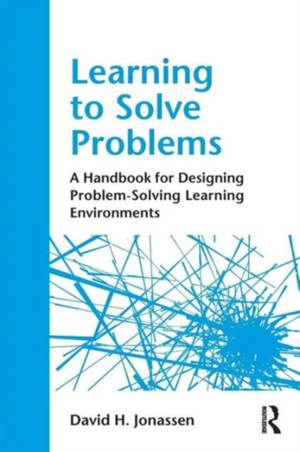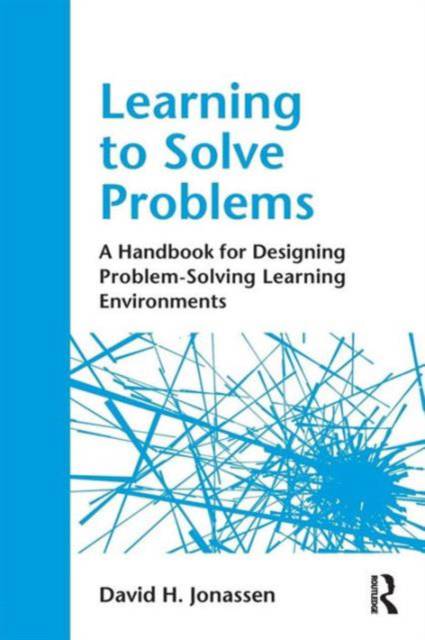
- Afhalen na 1 uur in een winkel met voorraad
- Gratis thuislevering in België
- Ruim aanbod met 7 miljoen producten
- Afhalen na 1 uur in een winkel met voorraad
- Gratis thuislevering in België
- Ruim aanbod met 7 miljoen producten
Omschrijving
This book provides a comprehensive, up-to-date look at problem solving research and practice over the last fifteen years. The first chapter describes differences in types of problems, individual differences among problem-solvers, as well as the domain and context within which a problem is being solved. Part one describes six kinds of problems and the methods required to solve them. Part two goes beyond traditional discussions of case design and introduces six different purposes or functions of cases, the building blocks of problem-solving learning environments. It also describes methods for constructing cases to support problem solving. Part three introduces a number of cognitive skills required for studying cases and solving problems. Finally, Part four describes several methods for assessing problem solving. Key features includes:
- Teaching Focus - The book is not merely a review of research. It also provides specific research-based advice on how to design problem-solving learning environments.
- Illustrative Cases - A rich array of cases illustrates how to build problem-solving learning environments. Part two introduces six different functions of cases and also describes the parameters of a case.
- Chapter Integration - Key theories and concepts are addressed across chapters and links to other chapters are made explicit. The idea is to show how different kinds of problems, cases, skills, and assessments are integrated.
- Author expertise - A prolific researcher and writer, the author has been researching and publishing books and articles on learning to solve problems for the past fifteen years.
This book is appropriate for advanced courses in instructional design and technology, science education, applied cognitive psychology, thinking and reasoning, and educational psychology. Instructional designers, especially those involved in designing problem-based learning, as well as curriculum designers who seek new ways of structuring curriculum will find it an invaluable reference tool.
Specificaties
Betrokkenen
- Auteur(s):
- Uitgeverij:
Inhoud
- Aantal bladzijden:
- 472
- Taal:
- Engels
Eigenschappen
- Productcode (EAN):
- 9780415871945
- Verschijningsdatum:
- 7/09/2010
- Uitvoering:
- Paperback
- Formaat:
- Trade paperback (VS)
- Afmetingen:
- 152 mm x 224 mm
- Gewicht:
- 635 g

Alleen bij Standaard Boekhandel
Beoordelingen
We publiceren alleen reviews die voldoen aan de voorwaarden voor reviews. Bekijk onze voorwaarden voor reviews.












